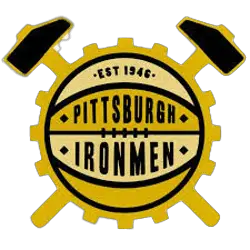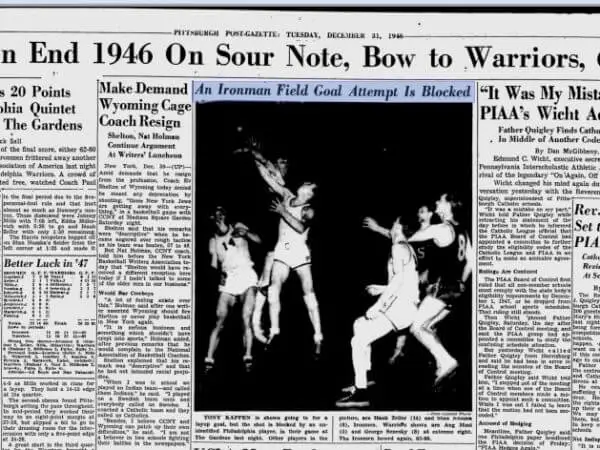
Established
1946
City
Pittsburgh
League History
1946 - 1947 / Basketball Association of America
Team History
1946 - 1947 / Pittsburgh Ironmen
Nickname
Ironmen - Pittsburgh is known as the Steelers City, but before the football team became Steelers their was the Ironmen in the 40's.
Championship
NBA Championships 0
BAA Championship 0
Arena
1946 - 1947 / Duquesne Gardens
Owner
1946 – 1947 / Unknown
Retired Number
*Blue is this team’s history
- 1946
-
Pittsburgh Ironmen Team Formation
They ended their only season in the BAA in 1946 – 1947 with a record of 15–45, finishing in fifth and last place in the Western Division and worst overall in the league. According to Nate Silver and Reuben Fischer-Baum, applying the Elo rating system, this was, through 2017, the worst season ever by a professional basketball team in a ...
Pittsburgh Ironmen History
The Pittsburgh Ironmen were a professional basketball team that played in the National Basketball League (NBL) from 1946-1947. The team was founded by Arthur Buford, who had previously owned the Pittsburgh Pirates of the American Basketball League. The Ironmen were an instant success, finishing with a record of 25 wins and 19 losses in their inaugural season and making it to the playoffs for two consecutive years.
The 1947-48 season saw significant changes for the franchise as they moved to Chicago and became known as “the Stags” due to their new home city's nickname, "Windy City." Despite these changes, they finished second place in both seasons before folding after two short years. During this period, many great players such as George Yardley, Don Otten, and Chuck Cooper played on this squad which made them one of the most successful teams during those times when compared with other NBL franchises like Anderson Packers or Sheboygan Redskins, who folded soon after being established.
Ironman Achievements
Despite having only existed for two short seasons, there is no doubt that during Pittsburgh Ironman basketball brief existence, The Pittsburgh Ironmen left an indelible mark on NBA history through its talented roster featuring future Hall Of Famers such as George Yardley while also playing an essential role in helping pave the way towards modern-day basketball by introducing novel concepts into gameplay like zone defense which would later become commonplace throughout league play today.
Sports Fan Products
Auto Amazon Links: No products found.





